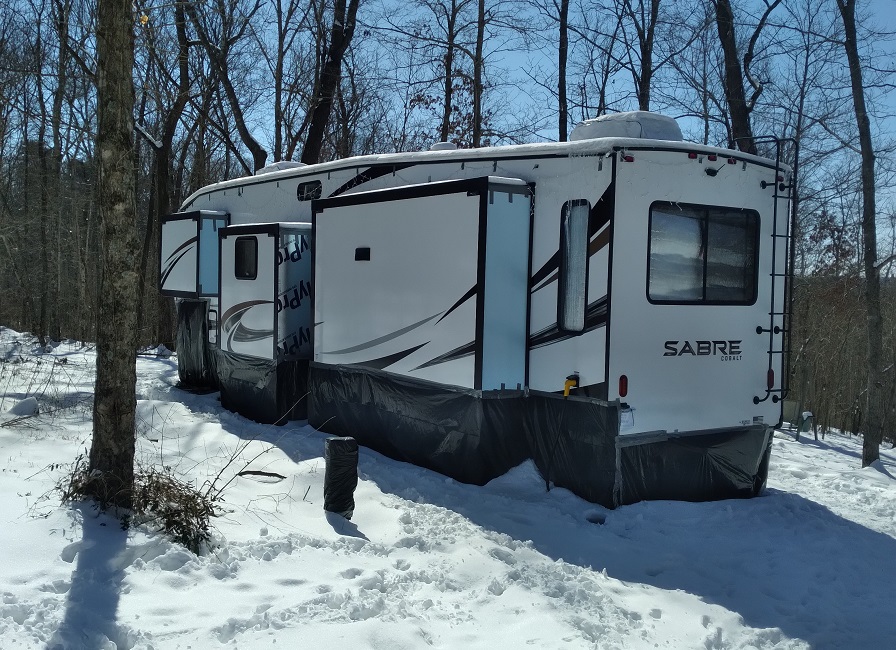Traveling restrictions were in full gear around last year, preventing many RVers from exploring the world. It’s not surprising that many people have started planning to travel compared to the previous year. This plan often includes getting the best RV financing deals online.

The traveling industry is gradually recovering from the impact of COVID-19. With an RV, booking a hotel or flight is unnecessary. Nevertheless, hitting the road when the temperature is freezing isn’t for the faint-hearted.
Here are some tips to help you make your RV life more enjoyable.
Protect your plumbing
Leaving water in your hoses and pipes will only make them freeze to the point of expansion. This can lead to bursting if care isn’t taken. If you are traveling in your RV for a few days or weeks, consider allowing water to move in your pipes by slowly leaving a faucet running.
Alternatively, wrap a heat tape around your hose and connect it to a power source to keep it warm.
Confirm the campground schedule.
Doing your homework and making adequate plans before traveling in any season is advisable. Map out your itinerary and contact the campground managers on time. This is because they may not operate during winter, and you won’t know this unless you confirm.
Winterize your RV
Some new RVers often wonder whether to winterize their RV or not. Winterizing involves draining your water lines, tanks, and heater. It’s important to take this step even if you don’t have any plans to travel in cold weather.
You can risk skipping this step if your destination is above freezing. However, if you’re traveling to an area that’s below freezing, prioritize winterizing. Contact your local RV company if you can’t figure it out.
Remember that you’ll have to use the campground facilities if you don’t use antifreeze for your sink or bathroom.
Proper insulation
Most Rovers will rarely use their heater once an RV is properly insulated. This is a sure way to use less propane, save money, and protect pipes and batteries.
Investing in an RV skirt will bring warmth into your RV. Ensure you insulate your windows by closing the shades and using a plastic film. Aside from that, you can install insulated covers on your windows.
Travel with the right gears.
Seasoned RVers understand the importance of traveling light and packing the right gear during each season. Some must-have equipments include a snow shovel, electric blankets, vent insulator pillows, and handwarmer pockets.
You can also download mobile apps to stay updated with weather and road conditions. These apps will also come in handy to prevent accidents and unnecessary delays.
Check your tires
Try replacing your regular RV with snow tires if you plan to travel in winter. In case you decide to get snow chains instead, take the necessary precautions. Drive slowly and with caution because there’s no need to be in a rush.
Invest in a heater.
Your water heater will offer ample comfort during the freezing period as you travel in your RV. The major downside of relying solely on the onboard heating system is that it may lack the capacity to offer warmth throughout the trip. This is why you should book a campground that has electricity.
Endeavor to keep your built-in furnace in good shape and prevent any obstruction to proper airflow.